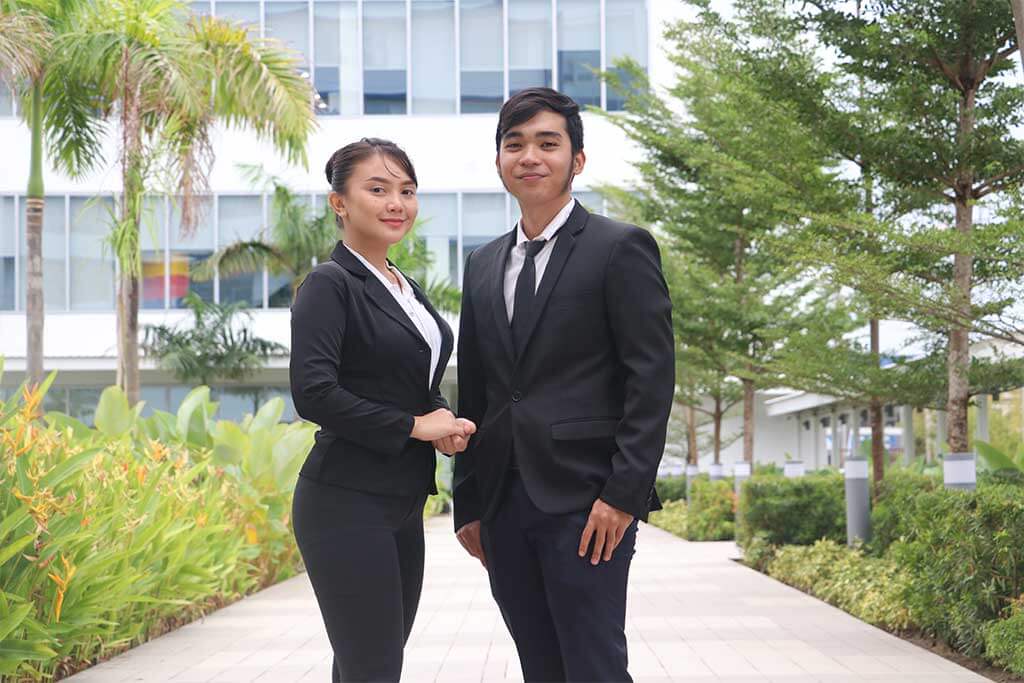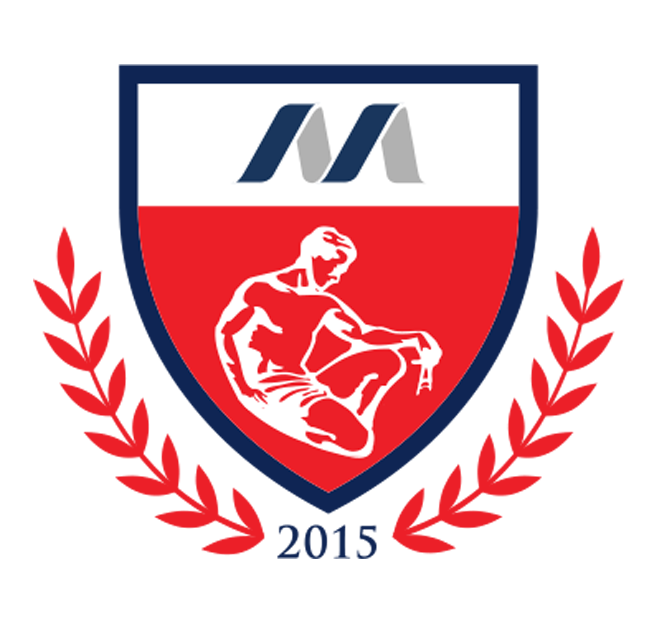Tourism Management Program

About Tourism Management
If you have an inclination towards everything about the travel experience, then the Bachelor of Science in Tourism Management program is for you. A bachelor’s degree in tourism management is synonymous with acquiring an extensive, hands-on, and theoretical knowledge in administration and business management in tourism, hotel and hospitality, and travel services.
The program prepares graduates to be adept in hard and soft skills through a combination of liberal arts, business fundamentals, and technology training. Students gain knowledge of foreign languages, geography, and culture alongside business mastery to meet the unique and dynamic demands of the tourism and travel industry. Additionally, the program integrates information technology, Artificial Intelligence (AI), and information systems courses, providing students with expertise in automation, digital processes, and proficiency in systems such as in the Amadeus Global Distribution Systems.
Partnerships with the Yuchengco Group (YGC) of companies also provide networking opportunities for students. Moreover, the program is in collaboration with Arizona State University (ASU), further enhancing a learning environment for students to be globally competitive and locally in demand.,
Bachelor of Science in Tourism Management
1. The program primarily prepares the student to be a tourism specialist that entails in-depth practical and theoretical knowledge in administration and business management. The student will be equipped for whatever role in the tourism industry, from airline flight attendants to hotel managers.
2. The students will be exposed to a variety of tourism institutions in the various sectors of the tourism industry to create a holistic educational environment. Through the various co-curricular and extra-curricular activities such as educational tours, M.I.C.E. planning and immersions, they will be exposed to not only the accommodations, transportation, and recreation sectors but also the food and beverage and M.I.C.E. sectors.
3. The graduates of this program are expected to be absorbed into management careers as experts and entrepreneurs in the tourism industry. This program leads to expertise in managing travel and tour management companies with sustainability in the forefront, as well as pride of the Filipino heritage.
Under Program Table Summary
- 2024 BSTM Curriculum File
- B.S. Tourism Management
- Total Number of Units and breakdown
| Course Classification | Total Number of Units |
|---|---|
General Education
| 24.0 9.0 17.0 |
| Institutional Required Courses | 20.0 |
| Tourism and Hospitality Core Courses | 30.0 |
| Tourism Professional Courses | 31.0 |
| Professional Electives | 15.0 |
| Practicum Courses | 6.0 |
| Enrichment Courses | 36.0 |
Common Business Management Education Courses | 6.0 |
| Total | 194.0 |
- Expected number of years to complete the program: 4 years
- Practicum Courses – A collective 600 hours of work-immersive experience divided into two terms with 300 hours each term.
Program Education Objectives
Three years after graduation, graduates of the Tourism Management Program shall:
1. have the technical skills, knowledge, and attributes at par with the standards of the industry to enable them to function as responsible professionals and frontliners in the ever-dynamic tourism industry;
2. have imbibed values and ethics to function as conscientious individuals, not only for personal development but also as part of the industry’s workforce;
3. preserve and promote Philippine historical and cultural heritage (based on R.A. 7722); and
4. engage in life-long learning and professional development.
Student Outcomes
At the end of the program, graduates of the Tourism Management Program are expected to be:
Adept in the technologies employed in the industry;
well-balanced in knowledge, skills, and personality;
As frontliners, emotionally adaptable to the rigorous, dynamic, and multicultural environment of the industry;
analytical decision makers and critical thinkers to enable problem solving;
well-versed and up to date on current issues.
professionally and ethically responsible and accountable;
able to effectively communicate orally and in writing in English, Filipino, the Mother Tongue, and an appropriate Foreign Language;
environmentally and socio-culturally conscientious; and
recognizant of the need for and importance for lifelong learning.
List of Courses
| TOURISM MANAGEMENT CORE COURSES | ||
|---|---|---|
| THM101 | PHILIPPINE CULTURE AND TOURISM GEOGRAPHY | |
| THM102 | RISK MANAGEMENT AS APPLIED TO SAFETY, SECURITY, AND SANITATION | |
| THM103 | QUALITY SERVICE MANAGEMENT IN TOURISM AND HOSPITALITY | |
| THM4 | LEGAL ASPECTS IN TOURISM AND HOSPITALITY | |
| THM105 | MARCOPERSPECTIVE OF TOURISM AND HOSPITALITY | |
| THM106 | PROFESSIONAL DEVELOPMENT AND APPLIED ETHICS | |
| THM107 | MULTICULTURAL DIVERSITY IN THE WORKPLACE | |
| THM108 | TOURISM AND HOSPITALITY MARKETING | |
| THM109 | MICROPERSPECTIVE OF TOURISM AND HOSPITALITY | |
| THM110 | ENTREPRENUERSHIP IN TOURISM AND HOSPITALITY | |
| ECO103 | MANAGERIAL ECONOMICS | |
| ECO107 | ECONOMIC DEVELOPMENT | |
| ACT103 | FINANCIAL ACCOUNTING AND REPORTING | |
| ACT104 | CONCEPTUAL FRAMEWORK AND ACCOUNTING STANDARDS | |
| ACT110 | INTERMEDIATE ACCOUNTING 1 | |
| PROFESSIONAL COURSES – These courses complement the technical competencies of business and management education, accounting education courses and the intellectual, interpersonal, communication, organizational and management skills in general education. | ||
| ACT150 | AUDITING AND ASSURANCE PRINCIPLES | |
| ACT151 | AUDITING AND ASSURANCE: CONCEPTS AND APPLICATIONS 1 | |
| ACT152 | AUDITING AND ASSURANCE: CONCEPTS AND APPLICATIONS 2 | |
| ACT153 | AUDITING AND ASSURANCE: SPECIALIZED INDUSTRIES | |
| ACT154 | AUDITING IN A CIS ENVIRONMENT | |
| ACT155 | ACCOUNTING FOR SPECIAL TRANSACTIONS | |
| ACT156 | ACCOUNTING FOR BUSINESS COMBINATIONS | |
| ACT157 | ACCOUNTING FOR GOVERNMENT AND NON-PROFIT ORGANIZATIONS | |
| PROFESSIONAL ELECTIVES – These are the courses that a student may select from. These may lead to a certain focus in the Accounting profession. | ||
| ACT103-B | UPDATES IN FINANCIAL REPORTING STANDARDS | |
| MGT106 | HUMAN BEHAVIOR IN ORGANIZATIONS | |
| ACT158 | OPERATIONS AUDITING | |
| ACT107 | VALUATION CONCEPTS AND METHODS | |
| ACT190 | PRINCIPLES AND METHODS IN TEACHING ACCOUNTING | |

